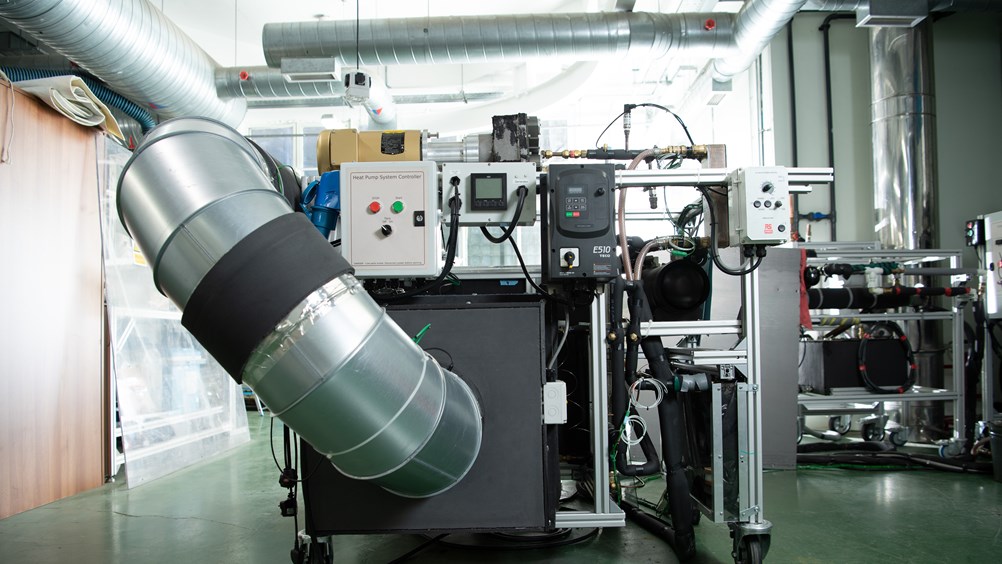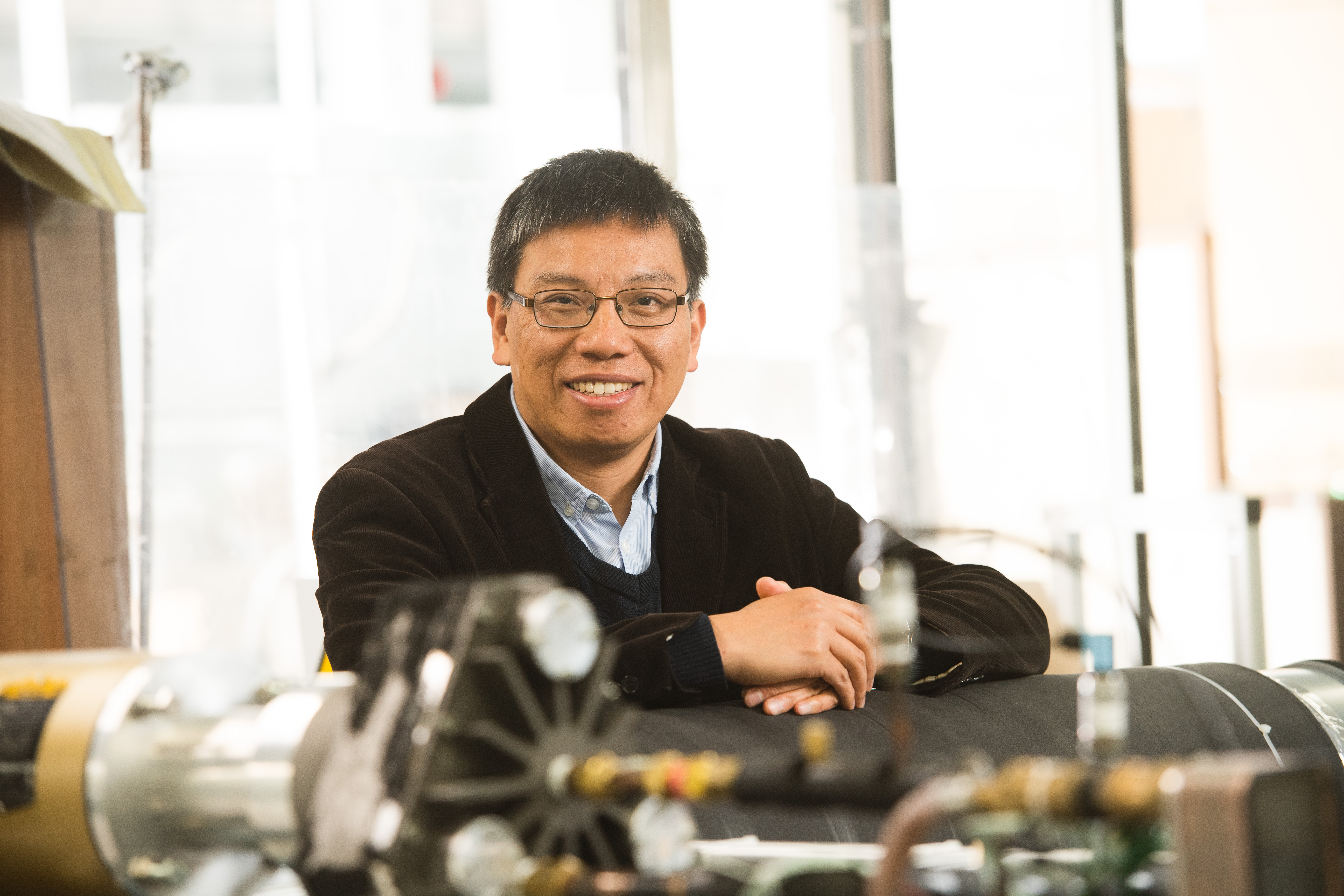
University of Glasgow
Described in Communications Engineering, the design couples a traditional air-source heat pump configuration with integrated heat storage in the form of a small water tank. Excess thermal energy from the heat pump’s operation is captured and stored in the tank, which is used at a later stage to boost efficiency, as the stored heat is considerably warmer than the external air.
Made from off the shelf parts, the Glasgow team’s prototype delivered a 3.7 per cent efficiency gain compared with a traditional heat pump, at the relatively low heat supply temperature of 35°C. As supply temperature increases, so does the amount of energy recovered, improving the system’s efficiency.
According to the team’s analysis, an optimised system could be up to 10 per cent more efficient than current products at a heat supply temperature of 65°C. In addition, the recovered heat stored in the water also allows the flexible heat pump to run continuously during defrosting, something most current models cannot do.
“Our flexible heat pump solves many of the problems with the current generation of heat pumps, making them capable of delivering improved performance while using less power,” said research lead Zhibin Yu, Professor of Thermal Energy at the University of Glasgow’s James Watt School of Engineering.

Zhibin Yu, Professor of Thermal Energy at the University of Glasgow’s James Watt School of Engineering - University of Glasgow
“The advantages of the flexible heat pump against current heat pump products is analogous to the advantages of condensing boiler against the non-condensing boiler – both recover excess heat to greatly improve efficiency.”
Around the world, about 40 per cent of all carbon emissions come from industrial and domestic heating powered by fossil fuels. Domestically, heat pumps are seen as an integral part of the transition away from the gas-fired boilers that heat most of our homes.
In the UK, the government has set a target for 600,000 heat pump installations per year by 2028, but costs, skills shortages, supply chain woes and a lack of financial support are all placing that target under severe threat. Cheaper, more efficient heat pumps are essential to help speed up the rollout.
“We’re at a critical juncture in our global move towards net-zero, where we need to start scaling up our low-carbon infrastructure quickly and effectively,” said Professor Yu. “That urgency is being particularly keenly felt at the moment, where energy prices are rising and many households are facing rapidly escalating bills.
“The cost of a small water tank heat storage is marginal, but the power saving is significant. It can be widely applied for all kinds of the heat pump applications. We believe that this could help drive improved take-up of heat pump technology in homes across the UK.”